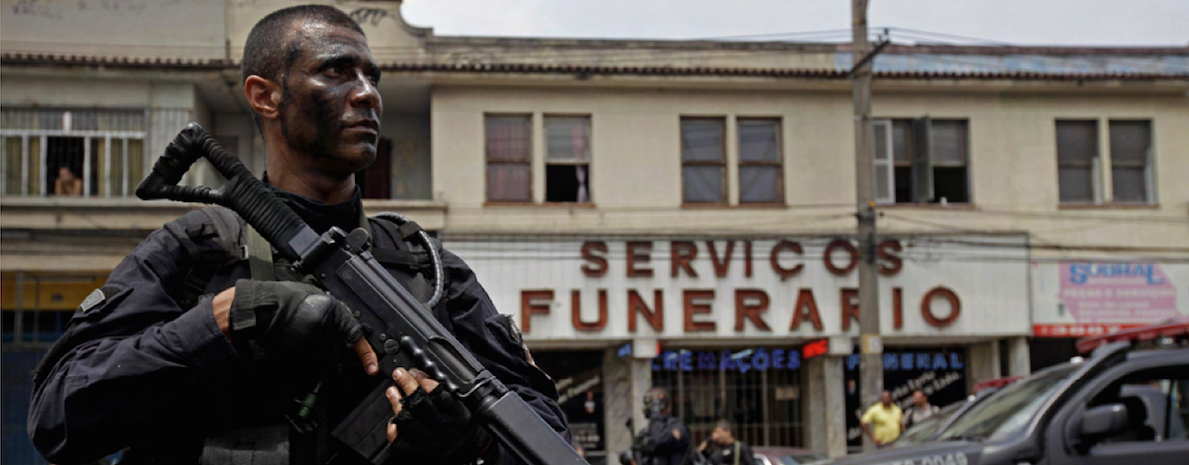The term used by more than 70 jurists in their denounce manifesto signed in the last days in Rio de Janeiro is “social apartheid”. Maybe this term, which evocates racism and ghettoization, is the most representative to describe the situation in the city’s favela of Jacarezinho. A no-stop operation, started on August the 11th was conducted by Military Police and Armed Forces in the community for more than 2 weeks. Several scenes of police violence and abuses were reported, as well as no concrete results were obtained by the authorities.
A result that perhaps was not the real aim. The operation occurred as a sort of punishment to the community for the death of an inspector of civil police during a raid against drug traffickers. The police reaction has been very strong: 7 people have already been killed and, according to the Public Defender, the majority was not involved in criminal organizations. In addition to the murders, more than 4,000 students were left without classes in the community and in other areas nearby, due to daily shootings in the neighborhood.
What’s happening in Jacarezinho, is just the last episode of a long history of injustice and violence in all favelas, directly linked with the wrong security policies imposed to the deficient areas along the last decades. New statistics show how Rio’s military police continue to use lethal force at high rates. According to the State’s Institute of Public Security, one person is killed by the police in Rio de Janeiro each 8 hour. In the first half of this year, 20% of the 2723 murders reported in the city, are responsibility of the police in service. The high number of killings, has been linked to poor police training practices and above all to the widespread impunity in cases of alleged abuses committed by security forces in the so-called “war against drug” that motivated the elaboration of a military opposition against the poor areas infected by drug traffickers.
In this particular conflict, the enemy started to be a territory, an urban area, and not the criminal organizations operating inside these areas. The respect of resident’s human rights, is not an option. Thus, the number of people killed during police operations has risen steadily over the past three years. In 2014 the resistance’s acts, as the death caused by police are registered, were 584. In 2015 rose till 645, and during the Olympic year 925 cases were reported. Considering the 581 deaths reported in the first six month this year, 2017 is going to be probably a record year.
The public security concept, developed in the ’80s and ’90s was still deeply influenced by the doctrine of national security that took root in everyday life during the dictatorship period, which was at the time, directed against political opponents of the authoritarian regime. In the name of “war” against the drug trafficking, that increasingly took control of various favelas, State violence began to spread, and simultaneously made the structural problems of inefficiency, lack of training and corruption in the police forces, evident. Despite the use of violence to maintain social order, the dominant position of drug traffickers in the community, rather than getting weaker, consolidated more and more.
This year, few weeks after the hard and unprecedented appeal by the Inter-American Court of Human Rights, which asked Brazil both an explanation and to find solutions for the atrocious security situation, Amnesty International and the NGO Justiça Global denouncedthe “logic of extermination and repression” to the UN Extrajudicial, Summary or Arbitrary Executions Secretariat: “The authorities of the State of Rio – states the NGO – have full knowledge of the serious human rights violations committed by the police of Rio de Janeiro and do nothing about it”.
Public safety in Rio de Janeiro is degenerating more and more. The situation is getting worse due to the economic crisis of the State (very close to a default) which in addition drives up the crime rate. As the result the police, with less and less economic resources, use more desperate measures. The occupation of favelas by the army is once again the only answer given by the State, thanks to the aid guaranteed by the federal government which sent to Rio thousands of troops in order to help the State’s security forces to keep the order. The abuses denounced by resident and human rights defenders are increasing.
Due to this strong increase of human rights abuses a group of jurists spread the manifesto to call the immediate realization of the Constitutional State in the community of Jacaré and other Carioca communities. This idea was born because academic and law experts believe that omission is not a possible choice when serious violation of rights and manifest criminalization of poverty persist, being solved only with an energetic intervention of public institutions that until now showed in the deepest inertia, so that the exercise of citizenship is not guaranteed to the residents of the Carioca communities.
“The vexed existence of shameful warrants for collective search and apprehension and the practice of standing at the door –they stated– demonstrate that for many, fundamental rights and guarantees positivized for another 28 years are still a true utopia and without any expectation of real fulfillment”.


